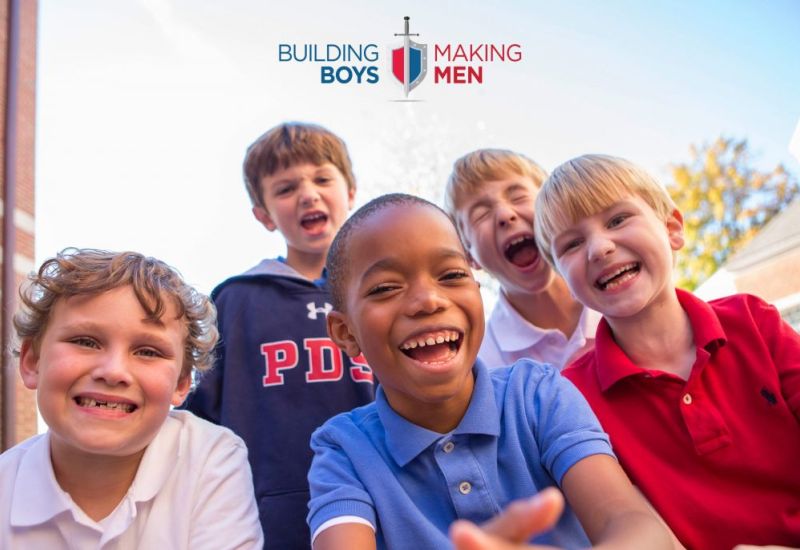Strategic Parenting



Building Boys, Making Men Menu
When It Comes to Your Children’s Reputation, Focus on the End Game
This is the second article in a three part series on helping our children grow in wisdom, stature, and favor with God and man (Luke 2:52).
As we continue our series on growing to be like Jesus in wisdom, stature, and favor with God and man (Luke 2:52), this article focuses on what it means to grow in stature. You can find the introduction to this series here, and the article on wisdom here.
Quick—think of someone you admire. What four or five attributes do you admire about them?
Maybe you thought of their talents or skills—or even their strength or their intelligence. But it’s likely most of the things you thought of have to do with character.
We should think about our kids in a similar way. We want our kids to grow physically and develop skills in academics, arts, and sports, is that really what we want our kids to be known for? I think we want our children to be known for their character—for being brave or kind or wise.
Growing in stature means developing physically and developing a reputation. As a parent which part of growing in stature can you have the biggest impact on as you spend time with them and shape them? Certainly not height! And while you can have some impact on the skills your children develop, you can have a huge impact on the development of their character.
In our last article, we looked at where character comes from. We know the source of virtuous charter is wisdom and that all true wisdom is from God. So how do we help our children develop character traits that lead to a good reputation?
Cultivate their hearts to be grateful for all they have.
Help them know that all of life is a gift from God. Teach them that God made them wonderfully unique and cares for every aspect of their lives. God even knows the hairs on their head (Luke 12:7) and will supply all of their needs (Philippians 4:19).
We can help our children see how much they have been given and how every part of life is a gift. Have them make a list of everything they have. Ask them how they got each item on the list and then trace them back to God as the ultimate source. Teach them to give God thanks for all that they have and for the way they are made.
Focus on effort, not results or skills.
The world around us tells us that our children should be involved in many things. It says they need to be soccer stars, straight-A students, or coding whiz-kids.
Nothing could be further from the truth.
Joshua 1:8 tells us, “Keep this Book of the Law always on your lips; meditate on it day and night, so that you may be careful to do everything written in it. Then you will be prosperous and successful.” If we help our children do their best with what they have in the tasks they have been given, that will be honoring to God.
Colossians 3:23-24 says, “Whatever you do, work at it with all your heart, as working for the Lord, not for human masters, since you know that you will receive an inheritance from the Lord as a reward. It is the Lord Christ you are serving.” Good work matters. We should encourage our children when they study diligently or wake up early for practice—but we praise them because God delights in their hard work for him, not because they might win a scholarship or championship. Celebrate their uniqueness, and praise them for their efforts. Pray with them and thank God for what he is doing in their lives.
Throw out horizontal comparisons
Never say, “Why can’t you be more like so-and-so.” When we compare our child to another child, we give them the wrong target. We don’t want to point them to anything human as their end goal. That creates far too short of a target. We have been given a perfect standard in Jesus, so let’s help them understand how to become more like Jesus.
Of course it’s okay to celebrate and praise others, but only as they point us to the One who lived it out perfectly. The Apostle Paul said “Follow my example, as I follow the example of Christ” (1 Corinthians 11:1). So let’s help our kids praise God for what he is doing in another person, especially if what we see in them is an attribute of Christ. For example, you might ….
Admire the way a leader puts others above themselves like Jesus does.
Note a classmate’s humility when they have achieved something.
Celebrate a teammate’s resilience when they make a difficult save on a goal.
Celebrate excellence of any kind that points us to God. All excellence points to Christ!
Help them develop their “why” — their end game.
Teach them why God put them on this earth. Help them understand their purpose in life and give them a true perspective of how short their lives are in view of eternity with Jesus.
First, teach them about their purpose. Let them know we are all here on this earth to learn about God and his love for us. Teach them that God’s love came to us in his Son Jesus, who lived and died to take away our sin and any barrier to God’s perfect love. Show your child in daily moments that each part of our lives points to God and our need for Jesus in some way. Let them know that all of our struggles and cares can be turned over to Jesus.
If they already know the love of God and Jesus, you can show them their great purpose is to live a life of thanksgiving to God by doing what Jesus told us to do. He said, “‘Love the Lord your God with all your heart and with all your soul and with all your mind and with all your strength.’ The second is this: ‘Love your neighbor as yourself. There is no commandment greater than these.’” (Mark 12:30-31 NIV)
In the same way that we can help them see God’s love in daily moments, we can help them see that everything they do is to give glory back to God. We can help them in daily moments of eating dinner, doing homework, and playing are opportunities to show God we love him (1 Corinthians 10:31).
We can also give them perspective on our time on earth and our time in our permanent home in heaven. We can let them know that, whether we live 20, 40, 60, 80 or even a hundred years, life on earth will be a blip compared to the length of eternity where we will live in perfect love with God and others forever.
“For our light and momentary troubles are achieving for us an eternal glory that far outweighs them all. So we fix our eyes not on what is seen, but on what is unseen, since what is seen is temporary, but what is unseen is eternal.” (2 Corinthians 4:17-18 NIV)
We know that our lives on earth are faster than a blink in comparison to eternity. But that can be hard for our children to remember when their whole lives stretch before them. We need to help them remember that, “‘What no eye has seen, what no ear has heard, and what no human mind has conceived’—the things God has prepared for those who love him” (1 Corinthians 2:9).
All From God, All For God
It is this eternal perspective that shows us what true stature is. It’s not about winning glory for ourselves. It’s about knowing that God loved us first so that we can love him. It’s for that reason that we help our kids live God-focused lives even as they go through everyday activities and learning. It’s why we help them turn over their schoolwork, their sports, their arts, and everything else they do to the glory of God.
Howard Graham

Howard Graham served as Chaplain at PDS and Executive Director of the Building Boys, Making Men program from 2018-2020.
Building Boys, Making Men is a PDS-created program designed to give boys a godly vision and definition of manhood. We believe that boys should be intentionally taught about authentic manhood and have a biblical framework for making wise and edifying choices during their teenage years and beyond. The definition of manhood we teach our boys:
A real man glorifies God by seeking an adventurous life of purpose and passion as he protects and serves others.











